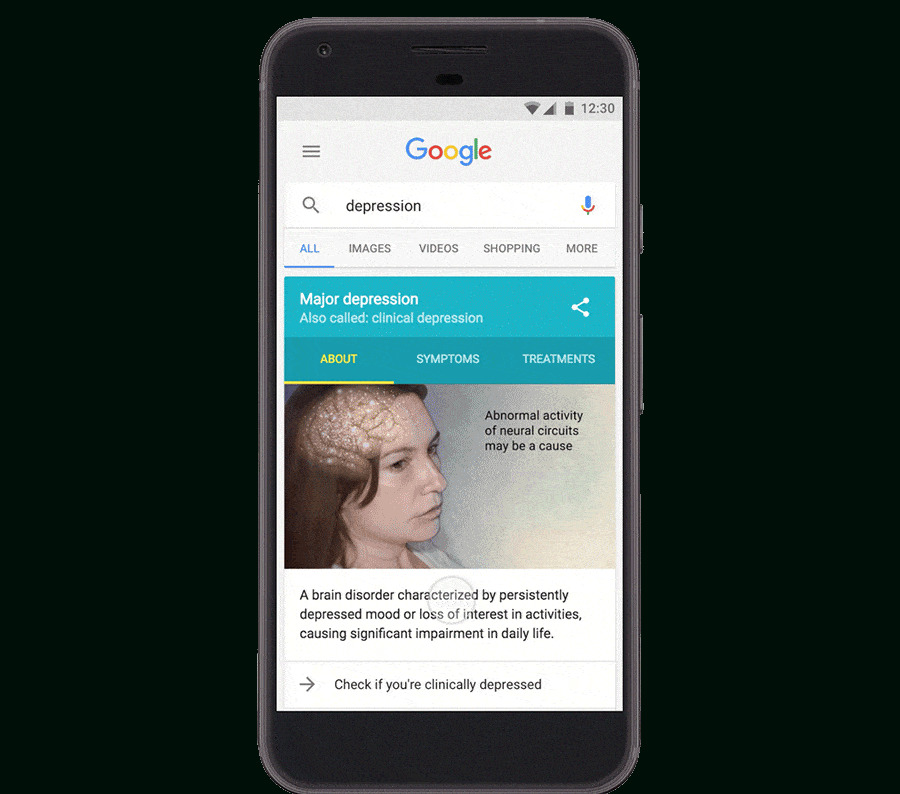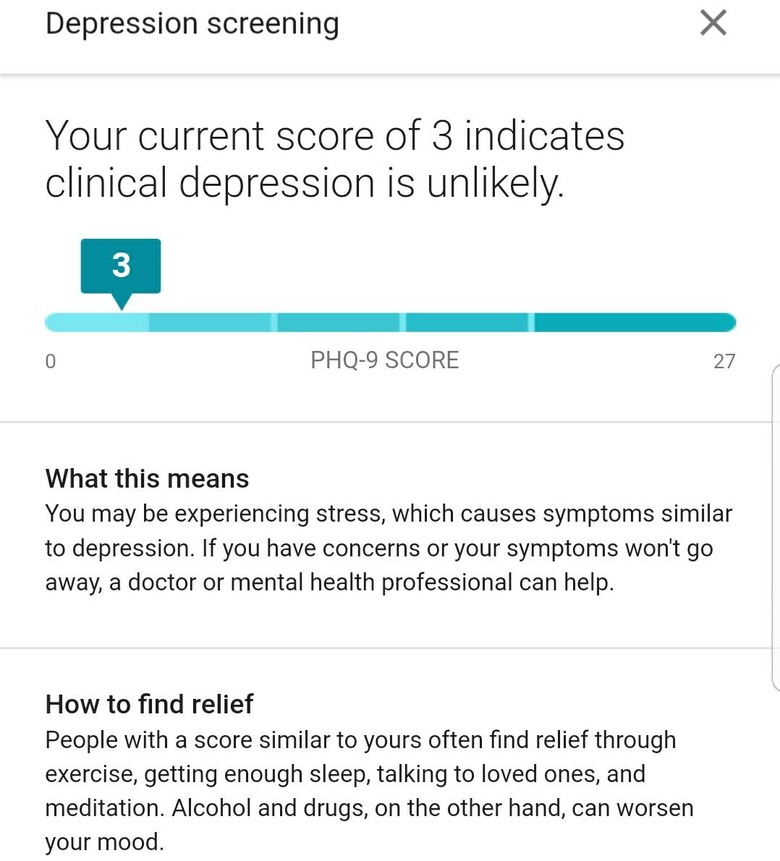Google's Depression Quiz Is Clinically Validated And Helps Gauge Severity
If you open the Google Search app on mobile and search the term 'clinical depression,' Google's front page results now include a questionnaire that visitors can take to gauge whether they're depressed and how severe that depression may be. The quiz is clinically validated, according to Google, which has teamed up with the National Alliance on Mental Illness. The quiz is the clinically-validated PHQ-9 questionnaire.
Google is the first place many people turn for answers about depression, or about the depression-like symptoms they may be experiencing. Google's auto-complete search feature indicates that one of the most common search terms related to clinical depression is 'test,' indicating that many sufferers seek some sort of effective quiz on determining whether their self-diagnoses may be correct.

The PHQ-9 questionnaire helps answer that question, showing how severely someone may be depressed and whether they need to go see someone in person for further help with their condition. The quiz contains only 9 questions, hence the name, and requires only about 5 minutes to complete. Before taking it, users are advised that the results are private and that the conclusion doesn't provide a medical diagnoses.
The questions ask the user to consider the last two weeks of their life, and to gauge how severely they were affected by or afflicted with things like excessive or poor appetite, trouble falling asleep or getting up, thoughts of death or similar, lack of interest in activities, and more. The results are presented on a sliding scale, with each higher point nudging the user more toward the 'clinically depressed' end of the spectrum.

Potential solutions to one's troubles are offered based on the score they received. If responses result in some points, but aren't enough to indicate whether the person has clinical depression, suggestions may include things like exercising more. At the highest end of the scale, users may be advised to visit a doctor to get treatment.
SOURCE: Google Blog
